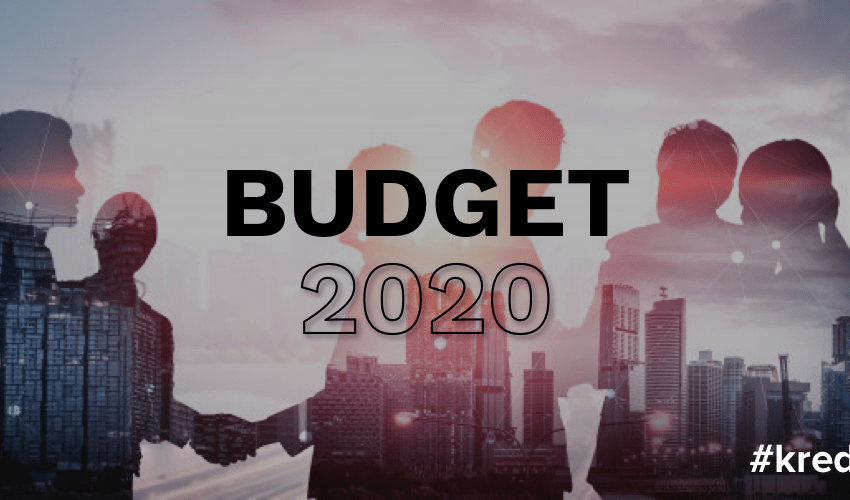
Budget 2020: Favoring the Foreign Investors And MNCs
The Union Budget 2020 announcement for investors evoked mixed responses from different sections as it was majorly focused to attract foreign investors who can now enjoy equal benefits like their Indian subsidiaries. Read to know the highlights.
The government’s measures in the Union Budget were conducive to foreign investors as the Finance Minister Nirmala Sitharaman justified the benefit small shareholders will enjoy from the move. While the proposing of Dividend Distribution Tax (DDT) would result in a higher tax rate for promoters and High Net-worth Individuals (HNIs), modifying the same by the government is ruled out.
The message is evident with the budget – extending full support to small shareholders.
Let us look at some of the highlights of Union Budget 2020 for investors in India:
A One-Stop Solution For Investors
To improve the ease of doing businesses in India, a pan-India four-phased, one-stop investment clearance cell for investments has been proposed as the government is targeting higher investments. The idea is to facilitate investors free investment advisory, land banks, and clearances even at the state level.
The Investment Clearance Cell, to be implemented in four phases, will onboard in a single online form all central government-related procedures and clearances. In addition, the Department for Promotion of Industry and Internal Trade (DPIIT) has planned to set up an investment clearance cell for easy application of licenses and incentives given by both central and state governments.
How Will It Benefit The Investors?
At present, a new investor has to follow multiple levels of application processes at different central departments for permissions like industrial entrepreneur memorandum, environment clearance, GST registration, import-export codes, EPF and ESIC registration, including company incorporation. Now, the proposal is expected to solve all of the above-mentioned procedures and other statutory permissions in a single online form.
Hand Holding Investment Proposals
The investment Clearance will be integrating both Invest India Query Management System and e-Nivesh Monitor. Invest India is a body, a partnership set up between the government and the industry to attend investment proposals, while e-Nivesh Monitor is a national portal for monitoring clearances.
Abolishing Dividend Distribution Tax (DDT)
The Dividend Distribution Tax (DDT) has been abolished, which means that investors will be taxed instead of the firm. The move is a welcome gesture to encourage companies to pay higher dividends and motivate investments in the long run. Before the abolition, dividends distributed by a domestic company or an Indian subsidiary of a foreign company was not a part of the total taxable income of an assessee. This is all going to change with the dividends falling under the head “income from other sources”.
With a corporate tax at 25 percent including DDT, the effective tax for Indian Inc. worked out at 48.5 percent, which was a damper for foreign companies with no credit whatsoever for DDT paid by their Indian subsidiaries.
The abolition of DDT will be effective from April 1, 2020.
Debt-Based Exchange-Traded Fund
The Finance Minister announced measures to widen the corporate bond and the government securities market. The plan to float a new debt Exchange-Traded Fund (ETF) comprising of government securities (G-sec) has been proposed for retail investors to invest in the G-sec market as well and enable them to buy government bonds.
The government is promoting the debt ETF to improve liquidity in the bond market, smoothen its borrowing plans and enhance investor base.
How Can It Help Investors Grow?
The reduction of income tax deductions will allow retail investors to shift a portion of their funds to ETF and position it as a better choice than tax saving insurance products. At times of economic distress, investment safety and better returns may attract retail investors towards ETF. So far, institutional investors were the actual buyers of debt papers, but the proposed plan will help the Centre to diversify its sources of borrowings.
Bottomline
The budget 2020 for investors had very few reasons to cheer as the measures have been tagged as ‘below par’ by analysts. The other noticeable highlights that favoured the investors was the government granting 100% exemption for sovereign wealth funds in infrastructure and other notified sectors with a minimum 3 years lock-in that is likely to give a significant impetus to the infrastructure sector. No scrutiny on the valuation of investors who file requisite declarations and provide information in their returns was appreciable though.
One of the most significant pain points that went unaddressed was the real estate sector which has been in troubled water recently, worrying most investors who complained about the lack of liquidity in the sector. Any relief for the same remained unanswered by the budget. Furthermore, to rub salt into the wound, the unclear roadmap for the Rs 2.1 lakh crore disinvestment target that the government proposed for FY21 seems to be slightly difficult in achieving, as attaining even half its amount in the current financial year has failed.




